STANFORD UNIVERSITY
STANFORD EMERGING TECHNOLOGY REVIEW
Reporting on Key Technology Areas and their Policy Implications
explore 2023 technology focus areas

STANFORD UNIVERSITY
Reporting on Key Technology Areas and their Policy Implications
Emerging technologies are transforming societies, economies, and geopolitics. This moment brings unparalleled promise and novel risks. In every era, technological advances buoy nations that develop and scale them—helping to save lives, win wars, foster greater prosperity, and advance the human condition. At the same time, history is filled with examples where slow-moving governments stifled innovation in ways policymakers never intended, and nefarious actors used technological advances in ways that inventors never imagined. Technology is a tool. It is not inherently good or bad. But its use can amplify human talent or degrade it, uplift societies or repress them, solve vexing challenges or exacerbate them. These effects are sometimes deliberate but often accidental.
The stakes of technological developments today are especially high. Artificial intelligence (AI) is already revolutionizing industries, from music to medicine to the military, and its impact has been likened to the invention of electricity. Yet AI is just one among many technologies that are ushering in profound change. Fields like synthetic biology, materials science, and neuroscience hold potential to vastly improve health care, environmental sustainability, economic growth, and more. We have experienced moments of major technological change before. But we have never experienced the convergence of so many technologies with the potential to change so much, so fast.
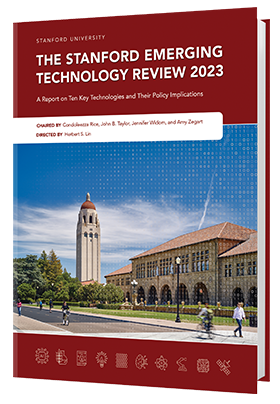
The Stanford Emerging Technology Review (SETR) is the first product of a major new Stanford technology education initiative for policymakers. Our goal is to help both the public and private sectors better understand the technologies poised to transform our world so that the United States can seize opportunities, mitigate risks, and ensure that the American innovation ecosystem continues to thrive.
Our efforts are guided by four observations:
Policymakers need better resources to help them understand technological developments faster, continuously, and more easily.
America’s global innovation leadership matters.
Academia’s role in American innovation is essential yet increasingly at risk.
The view from Stanford is unique, important and needed now more than ever.
Ensuring American leadership in science and technology requires all of us—academia, industry, government—to keep listening, learning, and working together. We hope the Stanford Emerging Technology Review starts meaningful and lasting conversations about how an innovation ecosystem benefits us all. The promise of emerging technology is boundless if we have the foresight to understand it and the fortitude to embrace the challenges.

Artificial intelligence (AI) is the ability of computers to perform functions associated with the human brain, including perceiving, reasoning, learning, interacting, problem solving, and exercising creativity.
Learn More
Biotechnology creates products or services in partnership with biology. Synthetic biology is third-generation biotechnology, complementing domestication and breeding (the first generation) and gene editing (the second generation).
Learn More
Cryptography is the practice of protecting data from being altered or accessed inappropriately. It is essential for most internet activity, including messaging, e-commerce, and banking. There are two main types of cryptography: symmetric and asymmetric.
Learn More
Materials science is a foundational technology that underlies advances in many fields, including robotics, space, energy, and synthetic biology.
Learn More
A brain-machine interface is a device that maps neural impulses from the brain to a computer and vice versa. There are many potential applications for this technology: sensory replacement or augmentation, replacement of severed limbs, direct mind-to-computer interfacing, or even computer assisted memory recall and cognition.
Learn More
Energy can be produced from two types of nuclear reactions: fission and fusion.
Learn More
Robotics has and will transform many industries through elimination, modification, or creation of jobs and functions. Robots are human-made physical entities with ways of sensing themselves or the world around them and the ability to create physical effects on that world.
Learn More
Chips must be designed and then manufactured, calling for two different skill sets. Recent research has identified methods that allow innovations in materials, devices, fabrication, and hardware to be added to existing process or systems at low incremental costs. These methods need to be further developed since they will be essential to continue to improve the computing infrastructure we all depend on.
Learn More
Space technology is any technology developed for the purpose of conducting or supporting activities beyond the Kármán line (i.e., one hundred kilometers or sixty-two miles above the Earth’s surface).
Learn More
The transition to sustainable energy relies on improving every step of the energy supply chain, from generation to transmission to storage. However, the sheer scale of global energy needs makes it clear that no single technology can meet these demands.
Learn More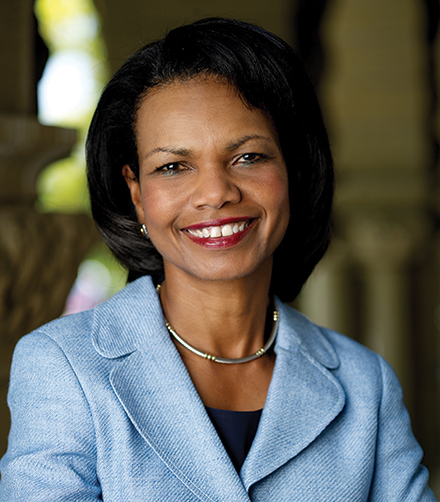
Condoleezza Rice is the Tad and Dianne Taube Director of the Hoover Institution and a Senior Fellow on Public Policy. She is the Denning Professor in Global Business and the Economy at the Stanford Graduate School of Business. In addition, she is a founding partner of Rice, Hadley, Gates & Manuel LLC, an international strategic consulting firm.From January 2005 to January 2009, Rice served as the 66th Secretary of State of the United States, the second woman and first black woman to hold the post. Rice also served as President George W. Bush’s Assistant to the President for National Security Affairs (National Security Advisor) from January 2001 to January 2005, the first woman to hold the position.Rice served as Stanford University’s provost from 1993 to 1999, during which time she was the institution’s chief budget and academic officer. As Professor of Political Science, she has been on the Stanford faculty since 1981 and has won two of the university’s highest teaching honors.From February 1989 through March 1991, Rice served on President George H.W. Bush’s National Security Council staff. She served as Director, then Senior Director, of Soviet and East European Affairs, as well as Special Assistant to the President for National Security. In 1986, while an International Affairs Fellow of the Council on Foreign Relations, Rice also served as Special Assistant to the Director of the Joint Chiefs of Staff.She has authored and co-authored numerous books, most recently To Build a Better World: Choices to End the Cold War and Create a Global Commonwealth (2019), co-authored with Philip Zelikow. Among her other volumes are three bestsellers, Democracy: Stories from the Long Road to Freedom (2017); No Higher Honor: A Memoir of My Years in Washington (2011); and Extraordinary, Ordinary People: A Memoir of Family (2010). She also wrote Political Risk: How Businesses and Organizations Can Anticipate Global Insecurity (2018) with Amy B. Zegart; Germany Unified and Europe Transformed: A Study in Statecraft (1995) with Philip Zelikow; edited The Gorbachev Era (1986) with Alexander Dallin; and penned The Soviet Union and the Czechoslovak Army; 1948-1983: Uncertain Allegiance (1984). In 1991, Rice co-founded the Center for a New Generation (CNG), an innovative, after-school academic enrichment program for students in East Palo Alto and East Menlo Park, California. In 1996, CNG merged with the Boys & Girls Club of the Peninsula, an affiliate club of the Boys & Girls Clubs of America (BCGA). CNG has since expanded to local BGCA chapters in Birmingham, Atlanta, and Dallas. Rice remains an active proponent of an extended learning day through after-school programs. Since 2009, Rice has served as a founding partner at Rice, Hadley, Gates, & Manuel LLC, an international strategic consulting firm based in Silicon Valley and Washington, D.C. The firm works with senior executives of major companies to implement strategic plans and expand in emerging markets. Other partners include former National Security Advisor Stephen J. Hadley, former Secretary of Defense Robert M. Gates, and former diplomat, author, and advisor on emerging markets, Anja Manuel.In 2022, Rice became a part-owner of the Denver Broncos as a part of the Walton-Penner Family Ownership Group. In 2013, Rice was appointed to the College Football Playoff Selection Committee, formerly the Bowl Championship Series. She served on the committee until 2017. Rice currently serves on the boards of C3.ai, an AI software company; and Makena Capital Management, a private endowment firm. In addition, she is Vice Chair of the Board of Governors of the Boys & Girls Clubs of America and a trustee of the Aspen Institute. Previously, Rice served on various boards, including Dropbox; the George W. Bush Institute; the Commonwealth Club; KiOR, Inc.; the Chevron Corporation; the Charles Schwab Corporation; the Transamerica Corporation; the Hewlett-Packard Company; the University of Notre Dame; the Foundation of Excellence in Education; the John F. Kennedy Center for the Performing Arts; and the San Francisco Symphony.Born in Birmingham, Alabama, Rice earned her bachelor’s degree in political science, cum laude and Phi Beta Kappa, from the University of Denver; her master’s in the same subject from the University of Notre Dame; and her Ph.D., likewise in political science, from the Graduate School of International Studies at the University of Denver.Rice is a Fellow of the American Academy of Arts and Sciences and has been awarded over fifteen honorary doctorates.

Director, Hoover Institution
Condoleezza Rice is the Tad and Dianne Taube Director of the Hoover Institution and a Senior Fellow on Public Policy. She is the Denning Professor in Global Business and the Economy at the Stanford Graduate School of Business. In addition, she is a founding partner of Rice, Hadley, Gates & Manuel LLC, an international strategic consulting firm.From January 2005 to January 2009, Rice served as the 66th Secretary of State of the United States, the second woman and first black woman to hold the post. Rice also served as President George W. Bush’s Assistant to the President for National Security Affairs (National Security Advisor) from January 2001 to January 2005, the first woman to hold the position.Rice served as Stanford University’s provost from 1993 to 1999, during which time she was the institution’s chief budget and academic officer. As Professor of Political Science, she has been on the Stanford faculty since 1981 and has won two of the university’s highest teaching honors.From February 1989 through March 1991, Rice served on President George H.W. Bush’s National Security Council staff. She served as Director, then Senior Director, of Soviet and East European Affairs, as well as Special Assistant to the President for National Security. In 1986, while an International Affairs Fellow of the Council on Foreign Relations, Rice also served as Special Assistant to the Director of the Joint Chiefs of Staff.She has authored and co-authored numerous books, most recently To Build a Better World: Choices to End the Cold War and Create a Global Commonwealth (2019), co-authored with Philip Zelikow. Among her other volumes are three bestsellers, Democracy: Stories from the Long Road to Freedom (2017); No Higher Honor: A Memoir of My Years in Washington (2011); and Extraordinary, Ordinary People: A Memoir of Family (2010). She also wrote Political Risk: How Businesses and Organizations Can Anticipate Global Insecurity (2018) with Amy B. Zegart; Germany Unified and Europe Transformed: A Study in Statecraft (1995) with Philip Zelikow; edited The Gorbachev Era (1986) with Alexander Dallin; and penned The Soviet Union and the Czechoslovak Army; 1948-1983: Uncertain Allegiance (1984). In 1991, Rice co-founded the Center for a New Generation (CNG), an innovative, after-school academic enrichment program for students in East Palo Alto and East Menlo Park, California. In 1996, CNG merged with the Boys & Girls Club of the Peninsula, an affiliate club of the Boys & Girls Clubs of America (BCGA). CNG has since expanded to local BGCA chapters in Birmingham, Atlanta, and Dallas. Rice remains an active proponent of an extended learning day through after-school programs. Since 2009, Rice has served as a founding partner at Rice, Hadley, Gates, & Manuel LLC, an international strategic consulting firm based in Silicon Valley and Washington, D.C. The firm works with senior executives of major companies to implement strategic plans and expand in emerging markets. Other partners include former National Security Advisor Stephen J. Hadley, former Secretary of Defense Robert M. Gates, and former diplomat, author, and advisor on emerging markets, Anja Manuel.In 2022, Rice became a part-owner of the Denver Broncos as a part of the Walton-Penner Family Ownership Group. In 2013, Rice was appointed to the College Football Playoff Selection Committee, formerly the Bowl Championship Series. She served on the committee until 2017. Rice currently serves on the boards of C3.ai, an AI software company; and Makena Capital Management, a private endowment firm. In addition, she is Vice Chair of the Board of Governors of the Boys & Girls Clubs of America and a trustee of the Aspen Institute. Previously, Rice served on various boards, including Dropbox; the George W. Bush Institute; the Commonwealth Club; KiOR, Inc.; the Chevron Corporation; the Charles Schwab Corporation; the Transamerica Corporation; the Hewlett-Packard Company; the University of Notre Dame; the Foundation of Excellence in Education; the John F. Kennedy Center for the Performing Arts; and the San Francisco Symphony.Born in Birmingham, Alabama, Rice earned her bachelor’s degree in political science, cum laude and Phi Beta Kappa, from the University of Denver; her master’s in the same subject from the University of Notre Dame; and her Ph.D., likewise in political science, from the Graduate School of International Studies at the University of Denver.Rice is a Fellow of the American Academy of Arts and Sciences and has been awarded over fifteen honorary doctorates.
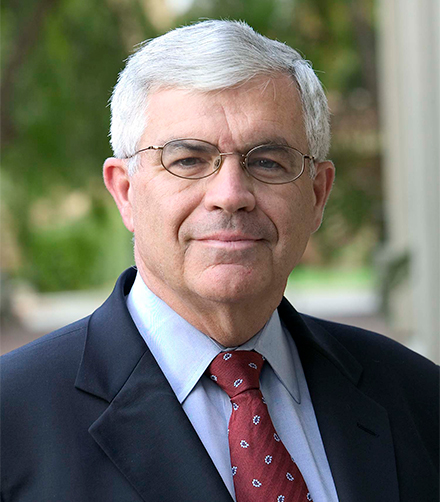
John B. Taylor is the George P. Shultz Senior Fellow in Economics at the Hoover Institution and the Mary and Robert Raymond Professor of Economics at Stanford University. He chairs the Hoover Working Group on Economic Policy, co-chairs the Hoover Technology, Economics and Governance Working Group, and is director of Stanford’s Introductory Economics Center.Taylor's fields of expertise are monetary policy, fiscal policy, and international economics. His book Getting Off Track was one of the first on the financial crisis; his latest book, First Principles, for which he received the 2012 Hayek Prize, develops an economic plan to restore America’s prosperity. His most recent book is Choose Economic Freedom: Enduring Policy Lessons from the 1970s and 1980s with George P. Shultz.Taylor served as senior economist on President Ford's and President Carter’s Council of Economic Advisers, as a member of President George H. W. Bush's Council of Economic Advisers, and as a senior economic adviser to Bob Dole’s presidential campaign, to George W. Bush’s presidential campaign in 2000, and to John McCain’s presidential campaign. He was a member of the Congressional Budget Office's Panel of Economic Advisers from 1995 to 2001. From 2001 to 2005, Taylor served as undersecretary of the Treasury for international affairs where he was responsible for currency markets, international development, for oversight of the International Monetary Fund and the World Bank, and for coordinating policy with the G-7 and G-20.Taylor received the Bradley Prize from the Bradley Foundation and the Adam Smith Award as well as the Adolph G. Abramson Award from the National Association for Business Economics. He was awarded the Alexander Hamilton Award for his overall leadership at the US Treasury, the Treasury Distinguished Service Award for designing and implementing the currency reforms in Iraq, and the Medal of the Republic of Uruguay for his work in resolving the 2002 financial crisis. At Stanford he was awarded the George P. Shultz Distinguished Public Service Award, as well as the Hoagland Prize and the Rhodes Prize for excellence in undergraduate teaching. He is a fellow of the American Academy of Arts and Sciences and the Econometric Society; he formerly served as vice president of the American Economic Association.Taylor received the 2016 Adam Smith Award from the Association of Private Enterprise Education and the 2015 Truman Medal for Economic Policy for extraordinary contribution to the formation and conduct of economic policy.Taylor formerly held positions as professor of economics at Princeton University and Columbia University. Taylor received a BA in economics summa cum laude from Princeton University in 1968 and a PhD in economics from Stanford University in 1973.

Senior Fellow, Hoover Institution
John B. Taylor is the George P. Shultz Senior Fellow in Economics at the Hoover Institution and the Mary and Robert Raymond Professor of Economics at Stanford University. He chairs the Hoover Working Group on Economic Policy, co-chairs the Hoover Technology, Economics and Governance Working Group, and is director of Stanford’s Introductory Economics Center.Taylor's fields of expertise are monetary policy, fiscal policy, and international economics. His book Getting Off Track was one of the first on the financial crisis; his latest book, First Principles, for which he received the 2012 Hayek Prize, develops an economic plan to restore America’s prosperity. His most recent book is Choose Economic Freedom: Enduring Policy Lessons from the 1970s and 1980s with George P. Shultz.Taylor served as senior economist on President Ford's and President Carter’s Council of Economic Advisers, as a member of President George H. W. Bush's Council of Economic Advisers, and as a senior economic adviser to Bob Dole’s presidential campaign, to George W. Bush’s presidential campaign in 2000, and to John McCain’s presidential campaign. He was a member of the Congressional Budget Office's Panel of Economic Advisers from 1995 to 2001. From 2001 to 2005, Taylor served as undersecretary of the Treasury for international affairs where he was responsible for currency markets, international development, for oversight of the International Monetary Fund and the World Bank, and for coordinating policy with the G-7 and G-20.Taylor received the Bradley Prize from the Bradley Foundation and the Adam Smith Award as well as the Adolph G. Abramson Award from the National Association for Business Economics. He was awarded the Alexander Hamilton Award for his overall leadership at the US Treasury, the Treasury Distinguished Service Award for designing and implementing the currency reforms in Iraq, and the Medal of the Republic of Uruguay for his work in resolving the 2002 financial crisis. At Stanford he was awarded the George P. Shultz Distinguished Public Service Award, as well as the Hoagland Prize and the Rhodes Prize for excellence in undergraduate teaching. He is a fellow of the American Academy of Arts and Sciences and the Econometric Society; he formerly served as vice president of the American Economic Association.Taylor received the 2016 Adam Smith Award from the Association of Private Enterprise Education and the 2015 Truman Medal for Economic Policy for extraordinary contribution to the formation and conduct of economic policy.Taylor formerly held positions as professor of economics at Princeton University and Columbia University. Taylor received a BA in economics summa cum laude from Princeton University in 1968 and a PhD in economics from Stanford University in 1973.
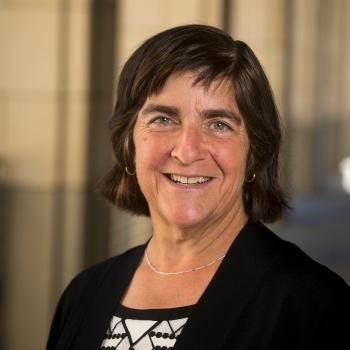
Jennifer Widom is the Frederick Emmons Terman Dean of the School of Engineering and the Fletcher Jones Professor in Computer Science and Electrical Engineering at Stanford University. She served as Computer Science Department Chair from 2009-2014 and School of Engineering Senior Associate Dean from 2014-2016. Jennifer received her Bachelor's degree from the Indiana University Jacobs School of Music in 1982 and her Computer Science Ph.D. from Cornell University in 1987. She was a Research Staff Member at the IBM Almaden Research Center before joining the Stanford faculty in 1993. Her research interests span many aspects of nontraditional data management. She is an ACM Fellow and a member of the National Academy of Engineering and the American Academy of Arts & Sciences; she received a Guggenheim Fellowship in 2000, the ACM SIGMOD Edgar F. Codd Innovations Award in 2007, the ACM-W Athena Lecturer Award in 2015, and the EPFL-WISH Foundation Erna Hamburger Prize in 2018.

Dean, School of Engineering
Jennifer Widom is the Frederick Emmons Terman Dean of the School of Engineering and the Fletcher Jones Professor in Computer Science and Electrical Engineering at Stanford University. She served as Computer Science Department Chair from 2009-2014 and School of Engineering Senior Associate Dean from 2014-2016. Jennifer received her Bachelor's degree from the Indiana University Jacobs School of Music in 1982 and her Computer Science Ph.D. from Cornell University in 1987. She was a Research Staff Member at the IBM Almaden Research Center before joining the Stanford faculty in 1993. Her research interests span many aspects of nontraditional data management. She is an ACM Fellow and a member of the National Academy of Engineering and the American Academy of Arts & Sciences; she received a Guggenheim Fellowship in 2000, the ACM SIGMOD Edgar F. Codd Innovations Award in 2007, the ACM-W Athena Lecturer Award in 2015, and the EPFL-WISH Foundation Erna Hamburger Prize in 2018.
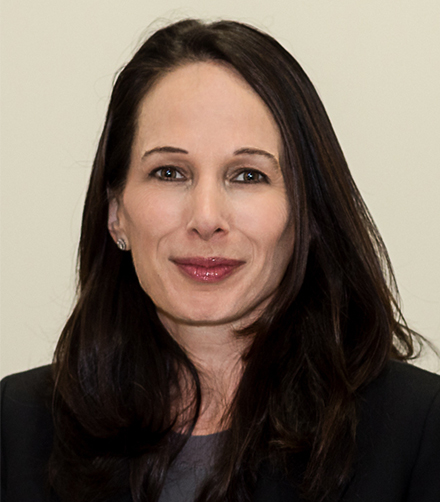
Amy Zegart is the Morris Arnold and Nona Jean Cox Senior Fellow at the Hoover Institution and Professor of Political Science (by courtesy) at Stanford University. She is also a Senior Fellow at Stanford's Human-Centered Artificial Intelligence Institute and the Freeman Spogli Institute for International Studies. The author of five books, she specializes in U.S. intelligence, emerging technologies and national security, grand strategy, and global political risk management.Zegart's award-winning research includes the leading academic study of intelligence failures before 9/11: Spying Blind: The CIA, the FBI, and the Origins of 9/11 (Princeton, 2007). Her most recent book is the bestseller Spies, Lies, and Algorithms: The History and Future of American Intelligence (Princeton, 2022), which was nominated by Princeton University Press for the Pulitzer Prize. She also coauthored Political Risk: How Businesses and Organizations Can Anticipate Global Insecurity, with Condoleezza Rice (Twelve, 2018) and coedited Bytes, Bombs, and Spies: The Strategic Dimensions of Offensive Cyber Operations with Herbert Lin (Brookings, 2019). Her op-eds and essays have appeared in Foreign Affairs, Politico, the New York Times, the Washington Post, and the Wall Street Journal.Zegart has advised senior officials about intelligence and foreign policy for more than two decades. She served on the National Security Council staff and as a presidential campaign foreign policy advisor and has testified before the House and Senate Intelligence Committees. In addition to conducting research and teaching, she led Stanford’s Center for International Security and Cooperation, founded the Stanford Cyber Policy Program, and served as chief academic officer of the Hoover Institution. Before coming to Stanford, she was professor of public policy at UCLA and a McKinsey & Company consultant.A native of Louisville, Kentucky, Zegart received an AB in East Asian studies, magna cum laude, from Harvard and an MA and a PhD in political science from Stanford. She serves on the boards of the Council on Foreign Relations, Kratos Defense & Security Solutions, and the American Funds/Capital Group.

Senior Fellow, Hoover Institution
Amy Zegart is the Morris Arnold and Nona Jean Cox Senior Fellow at the Hoover Institution and Professor of Political Science (by courtesy) at Stanford University. She is also a Senior Fellow at Stanford's Human-Centered Artificial Intelligence Institute and the Freeman Spogli Institute for International Studies. The author of five books, she specializes in U.S. intelligence, emerging technologies and national security, grand strategy, and global political risk management.Zegart's award-winning research includes the leading academic study of intelligence failures before 9/11: Spying Blind: The CIA, the FBI, and the Origins of 9/11 (Princeton, 2007). Her most recent book is the bestseller Spies, Lies, and Algorithms: The History and Future of American Intelligence (Princeton, 2022), which was nominated by Princeton University Press for the Pulitzer Prize. She also coauthored Political Risk: How Businesses and Organizations Can Anticipate Global Insecurity, with Condoleezza Rice (Twelve, 2018) and coedited Bytes, Bombs, and Spies: The Strategic Dimensions of Offensive Cyber Operations with Herbert Lin (Brookings, 2019). Her op-eds and essays have appeared in Foreign Affairs, Politico, the New York Times, the Washington Post, and the Wall Street Journal.Zegart has advised senior officials about intelligence and foreign policy for more than two decades. She served on the National Security Council staff and as a presidential campaign foreign policy advisor and has testified before the House and Senate Intelligence Committees. In addition to conducting research and teaching, she led Stanford’s Center for International Security and Cooperation, founded the Stanford Cyber Policy Program, and served as chief academic officer of the Hoover Institution. Before coming to Stanford, she was professor of public policy at UCLA and a McKinsey & Company consultant.A native of Louisville, Kentucky, Zegart received an AB in East Asian studies, magna cum laude, from Harvard and an MA and a PhD in political science from Stanford. She serves on the boards of the Council on Foreign Relations, Kratos Defense & Security Solutions, and the American Funds/Capital Group.
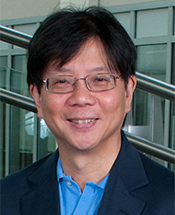
Dr. Herb Lin is Hank J. Holland Fellow in Cyber Policy and Security at the Hoover Institution and senior research scholar for cyber policy and security at the Center for International Security and Cooperation, both at Stanford University. His research interests relate broadly to policy-related dimensions of cybersecurity and cyberspace, and he is particularly interested in the use of offensive operations in cyberspace as instruments of national policy and in the security dimensions of information warfare and influence operations on national security. In addition to his positions at Stanford University, he is Chief Scientist, Emeritus for the Computer Science and Telecommunications Board, National Research Council (NRC) of the National Academies, where he served from 1990 through 2014 as study director of major projects on public policy and information technology, and Adjunct Senior Research Scholar and Senior Fellow in Cybersecurity (not in residence) at the Saltzman Institute for War and Peace Studies in the School for International and Public Affairs at Columbia University; and a member of the Science and Security Board of the Bulletin of Atomic Scientists. In 2016, he served on President Obama’s Commission on Enhancing National Cybersecurity. Prior to his NRC service, he was a professional staff member and staff scientist for the House Armed Services Committee (1986-1990), where his portfolio included defense policy and arms control issues. He received his doctorate in physics from MIT.To read more about Herb Lin's interests, see "An Evolving Research Agenda in Cyber Policy and Security."Avocationally, he is a longtime folk and swing dancer and a lousy magician. Apart from his work on cyberspace and cybersecurity, he is published in cognitive science, science education, biophysics, and arms control and defense policy. He also consults on K-12 math and science education.

Fellow, Hoover Institution
Dr. Herb Lin is Hank J. Holland Fellow in Cyber Policy and Security at the Hoover Institution and senior research scholar for cyber policy and security at the Center for International Security and Cooperation, both at Stanford University. His research interests relate broadly to policy-related dimensions of cybersecurity and cyberspace, and he is particularly interested in the use of offensive operations in cyberspace as instruments of national policy and in the security dimensions of information warfare and influence operations on national security. In addition to his positions at Stanford University, he is Chief Scientist, Emeritus for the Computer Science and Telecommunications Board, National Research Council (NRC) of the National Academies, where he served from 1990 through 2014 as study director of major projects on public policy and information technology, and Adjunct Senior Research Scholar and Senior Fellow in Cybersecurity (not in residence) at the Saltzman Institute for War and Peace Studies in the School for International and Public Affairs at Columbia University; and a member of the Science and Security Board of the Bulletin of Atomic Scientists. In 2016, he served on President Obama’s Commission on Enhancing National Cybersecurity. Prior to his NRC service, he was a professional staff member and staff scientist for the House Armed Services Committee (1986-1990), where his portfolio included defense policy and arms control issues. He received his doctorate in physics from MIT.To read more about Herb Lin's interests, see "An Evolving Research Agenda in Cyber Policy and Security."Avocationally, he is a longtime folk and swing dancer and a lousy magician. Apart from his work on cyberspace and cybersecurity, he is published in cognitive science, science education, biophysics, and arms control and defense policy. He also consults on K-12 math and science education.
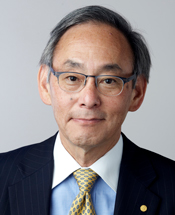
Steven Chu is the William R. Kenan, Jr. Professor of physics and professor of molecular and cellular physiology and of energy science and engineering at Stanford University. He previously served as US secretary of energy (2009–13) and as director of the Lawrence Berkeley National Laboratory. He received his PhD in physics from the University of California–Berkeley.

William R. Kenan Jr. Professor of Physics, and Professor of Molecular and Cellular Physiology, and of Energy Science and Engineering at Stanford University. Former Secretary of Energy
Steven Chu is the William R. Kenan, Jr. Professor of physics and professor of molecular and cellular physiology and of energy science and engineering at Stanford University. He previously served as US secretary of energy (2009–13) and as director of the Lawrence Berkeley National Laboratory. He received his PhD in physics from the University of California–Berkeley.
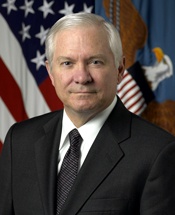
Robert Gates served as the twenty-second secretary of defense (2006–11) and as the director of central intelligence (1991–93) following nearly twenty-seven years in the CIA and on the National Security Council. He is the current chancellor of William & Mary and previously served as president of Texas A&M University. He received his PhD in Russian and Soviet history from Georgetown University.

Former Secretary of Defense
Robert Gates served as the twenty-second secretary of defense (2006–11) and as the director of central intelligence (1991–93) following nearly twenty-seven years in the CIA and on the National Security Council. He is the current chancellor of William & Mary and previously served as president of Texas A&M University. He received his PhD in Russian and Soviet history from Georgetown University.
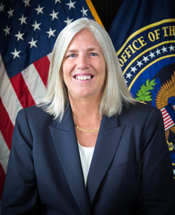
Susan M. Gordon is currently the director at CACI International and served as the fifth principal deputy director of national intelligence at the Office of the Director of National Intelligence (2017–19). She was previously deputy director of the National Geospatial Intelligence Agency (2015–17) and served twenty-seven years in the CIA, including as director of the CIA’s Information Operations Center.

Director at CACI International
Susan M. Gordon is currently the director at CACI International and served as the fifth principal deputy director of national intelligence at the Office of the Director of National Intelligence (2017–19). She was previously deputy director of the National Geospatial Intelligence Agency (2015–17) and served twenty-seven years in the CIA, including as director of the CIA’s Information Operations Center.
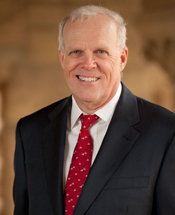
John L. Hennessy is professor of electrical engineering and computer science at Stanford University and the chairman of Alphabet Inc. He previously served as the tenth president of Stanford University (2000–16) and is the founder and director of the Knight-Hennessy Scholars Program, the world’s largest fully endowed graduate-level scholarship program. He received his PhD in computer science from Stony Brook University.

Shriram Family Director, Knight-Hennessy Scholars
John L. Hennessy is professor of electrical engineering and computer science at Stanford University and the chairman of Alphabet Inc. He previously served as the tenth president of Stanford University (2000–16) and is the founder and director of the Knight-Hennessy Scholars Program, the world’s largest fully endowed graduate-level scholarship program. He received his PhD in computer science from Stony Brook University.
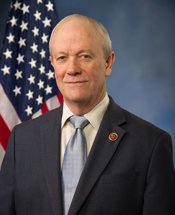
Jerry McNerny is the former US representative for California’s ninth congressional district (2007–23), where he served on the Committee on Energy and Commerce, the Veterans’ Affairs Committee, and the Space, Science, and Technology Committee. He received his PhD in mathematics from the University of New Mexico–Albuquerque.

Former U.S. House of Representatives from California
Jerry McNerny is the former US representative for California’s ninth congressional district (2007–23), where he served on the Committee on Energy and Commerce, the Veterans’ Affairs Committee, and the Space, Science, and Technology Committee. He received his PhD in mathematics from the University of New Mexico–Albuquerque.

Mary Meeker is a cofounder and general partner of BOND and serves on the boards of Block/Square, Genies, Nextdoor, and Plaid. Her investments at BOND (and, previously, Kleiner Perkins) include Spotify, Waze, DocuSign, Ring, Checkr, Ironclad, and On Running. She was previously a managing director at Morgan Stanley, focused on emerging technology companies, coauthor of USA Inc.: A Basic Summary of America’s Financial Statements, and publisher of the widely distributed Internet Trends Report.

General Partner at BOND
Mary Meeker is a cofounder and general partner of BOND and serves on the boards of Block/Square, Genies, Nextdoor, and Plaid. Her investments at BOND (and, previously, Kleiner Perkins) include Spotify, Waze, DocuSign, Ring, Checkr, Ironclad, and On Running. She was previously a managing director at Morgan Stanley, focused on emerging technology companies, coauthor of USA Inc.: A Basic Summary of America’s Financial Statements, and publisher of the widely distributed Internet Trends Report.
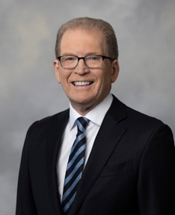
Lloyd B. Minor is the Carl and Elizabeth Naumann Dean of the School of Medicine and vice president for medical affairs at Stanford University. He is a professor of otolaryngology–head and neck surgery and professor, by courtesy, of bioengineering and neurobiology at Stanford University. Prior to joining Stanford, he was provost and senior vice president for academic affairs at Johns Hopkins University. He is an elected member of the National Academy of Medicine.

Carl and Elizabeth Naumann Professorship for the Dean of the School of Medicine, Professor of Otolaryngology - Head & Neck Surgery (OHNS) and, by courtesy, of Neurobiology and of Bioengineering
Lloyd B. Minor is the Carl and Elizabeth Naumann Dean of the School of Medicine and vice president for medical affairs at Stanford University. He is a professor of otolaryngology–head and neck surgery and professor, by courtesy, of bioengineering and neurobiology at Stanford University. Prior to joining Stanford, he was provost and senior vice president for academic affairs at Johns Hopkins University. He is an elected member of the National Academy of Medicine.

Peter L. Scher is the vice chairman of JPMorgan Chase & Co. and a member of the firm’s Operating Committee and cofounder and chairman of the board of directors of the Greater Washington Partnership. Prior to joining JPMorgan Chase in 2008, he was the managing partner of the Washington, DC, office of law firm Mayer Brown LLP and spent nearly a decade in public service.

Peter L. Scher is the vice chairman of JPMorgan Chase & Co. and a member of the firm’s Operating Committee and cofounder and chairman of the board of directors of the Greater Washington Partnership. Prior to joining JPMorgan Chase in 2008, he was the managing partner of the Washington, DC, office of law firm Mayer Brown LLP and spent nearly a decade in public service.
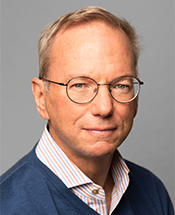
Eric Schmidt is cofounder of Schmidt Futures, a philanthropic initiative that bets early on exceptional people making the world better, and chair of the board of trustees of the Broad Institute. Previously, he was CEO and chairman of Google (2001–11) and executive chairman and technical adviser to Alphabet until 2020. He received his PhD in electrical engineering and computer science from the University of California–Berkeley.

Eric Schmidt is cofounder of Schmidt Futures, a philanthropic initiative that bets early on exceptional people making the world better, and chair of the board of trustees of the Broad Institute. Previously, he was CEO and chairman of Google (2001–11) and executive chairman and technical adviser to Alphabet until 2020. He received his PhD in electrical engineering and computer science from the University of California–Berkeley.
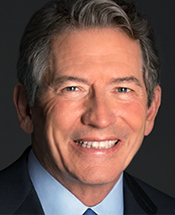
Thomas M. Siebel is the chairman and CEO of C3 AI and was the founder and CEO of Siebel Systems. He is a member of the colleges of engineering boards at the University of Illinois at Urbana-Champaign and the University of California–Berkeley and is an elected member of the American Academy of Arts and Sciences.

Founder of Siebel Systems Chairman and Chief Executive Officer at C3.ai
Thomas M. Siebel is the chairman and CEO of C3 AI and was the founder and CEO of Siebel Systems. He is a member of the colleges of engineering boards at the University of Illinois at Urbana-Champaign and the University of California–Berkeley and is an elected member of the American Academy of Arts and Sciences.
Hon. Steven Chu
Hon. Robert Gates
Hon. Susan M. Gordon
John Hennessy
Hon. Jerry McNerney
Mary Meeker
Lloyd B. Minor, MD
Peter Scher
Eric Schmidt
Thomas M. Siebel

The Technology, Economics, and Governance Working Group seeks to understand the drivers and dynamics of technological innovation in the 21st century, assess the opportunities and risks that breakthrough technologies are creating, and develop governance approaches that maximize the benefits and mitigate the risks for the nation and the world. Facts and objective analysis are the keys to the approach.

The Tech Track 2 (TT2) initiative is designed to foster deeper cooperation between US government leaders, tech executives, and distinguished academics on urgent national security challenges. Advanced research and emerging technologies have long been a cornerstone of US global leadership, but the cultural divide between Washington, D.C. and Silicon Valley, exacerbated by outdated government policies, undermines America’s ability to leverage its capacity for innovation on behalf of US national interests. TT2 seeks to break down barriers between the government, industry, and academia, and inspire partnerships that reinforce US advantages critical to protecting liberal democratic values, fostering prosperity, and preserving peace worldwide. At its core, TT2 is about building a strong community of interest among change-makers. Regular, private convenings harness the wisdom of an expert crowd with diverse professional backgrounds to enhance understanding of current opportunities and challenges within the national security space while identifying actionable solutions to pressing issues. Conversations are candid, unclassified, off-the-record, and focused on driving change.
Stanford University is tightly coupled to the scientific and technological innovation ecosystem and has been for many years. The Stanford Emerging Technology Review (SETR) is an effort to produce a periodic report for policy and leadership audiences that accounts for new and important scientific and technical developments at Stanford University across ten technological areas and identifies barriers, needs, and opportunities for progress in each area.
Subscribe for news and updates in regards to the Stanford Technology Review. If you have any questions, please email us at setr-admin@stanford.edu.
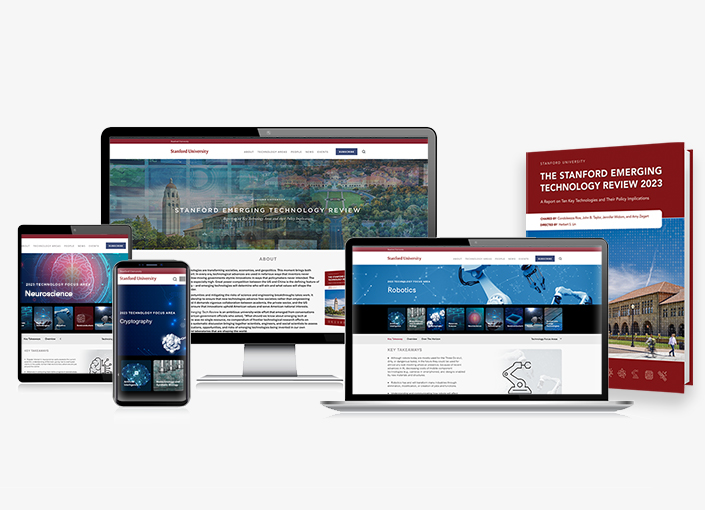
The Hoover Institution and Stanford School of Engineering have launched the inaugural edition of the Stanford Emerging Technology Review, a project and publication dedicated to the forefront of technologies shaping the global landscape.